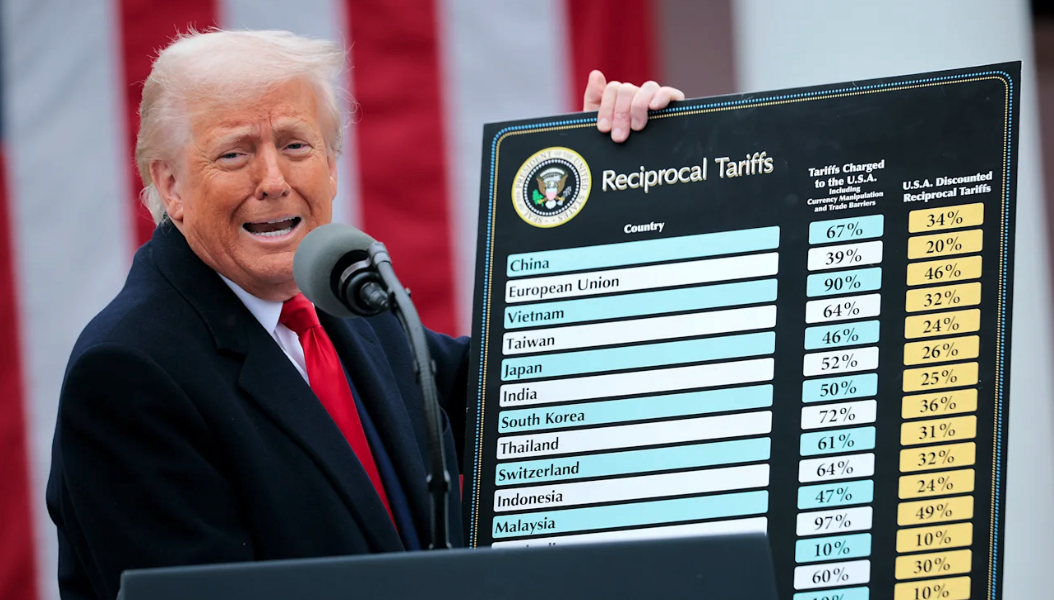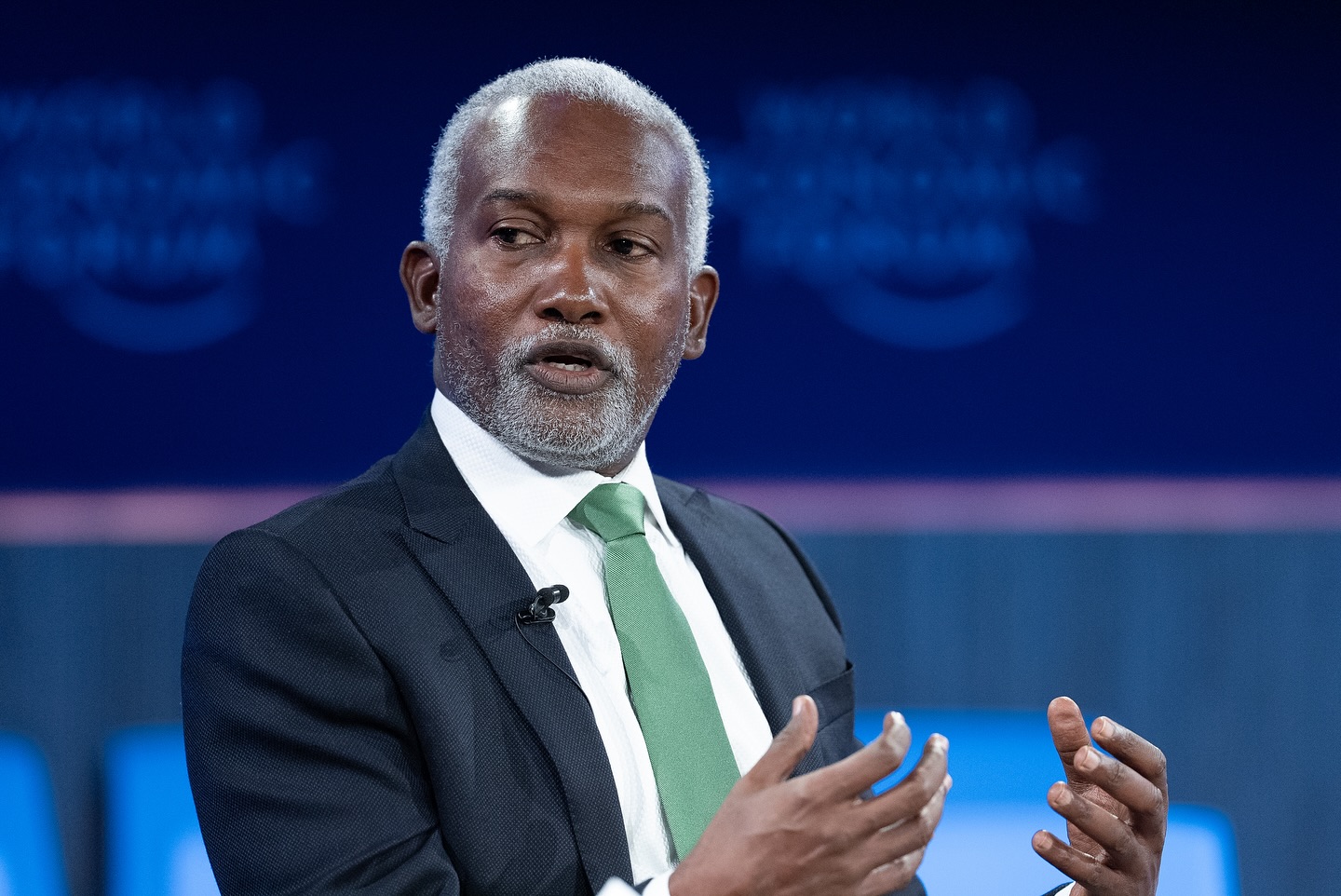US Tariff Threats & Global Trade Dynamics under Trump

Former U.S. President Donald Trump has declared that countries aligning with what he termed the “anti-American policies of BRICS” will face an additional 10% tariff, a move announced via Truth Social that introduces fresh uncertainty into global trade relations. This declaration came as the BRICS group convened in Rio de Janeiro, Brazil, where Nigeria was formally admitted as a partner country on January 17, 2025. The U.S. has also extended the deadline for the implementation of sweeping tariffs on various trading partners to August 1, providing a temporary reprieve for ongoing negotiations.
BRICS leaders, without directly naming the United States, responded by cautioning against “unjustified unilateral protectionist measures, including the indiscriminate increase of reciprocal tariffs.” They voiced “serious concerns about the rise of unilateral tariff and non-tariff measures which distort trade and are inconsistent with WTO rules,” warning that such actions threaten to disrupt the global economy and exacerbate existing economic disparities. The bloc also urged wealthy countries to fund the energy transition of poorer nations, emphasizing the criticality of accessible and affordable climate finance for developing countries to achieve just transition pathways that combine climate action with sustainable development. Despite this, BRICS acknowledged the continued important role of fossil fuels in the world’s energy mix, particularly for emerging markets.
Nigerian President Bola Tinubu reaffirmed his nation's commitment to the BRICS partnership and the Global South alliance at the Summit. He highlighted shared concerns regarding financial restructuring, global healthcare inequalities, environmental degradation, and the climate crisis, noting that Africa, despite contributing the least to global emissions, suffers the most. President Tinubu stressed the need for a new path of justice, fairness, sustainable technology transfer, and accessible financing, underscoring Nigeria’s belief in South-South cooperation. He affirmed Nigeria’s dedication to accelerating renewable energy adoption, mainstreaming climate action, promoting nature-based solutions, and achieving universal health coverage, envisioning BRICS not just as an economic bloc but a beacon for emerging solutions rooted in solidarity and shared prosperity.
Meanwhile, South Africa has rejected claims of holding anti-American views, reaffirming its commitment to securing a trade agreement with the United States. Trade ministry spokesman Kaamil Alli stated that conversations remain constructive, despite a sharp decline in U.S.-South Africa relations since President Trump’s return to the White House. Tensions escalated following the expulsion of South Africa’s ambassador and cuts in financial aid, linked to objections over South Africa’s land reform policies and its pursuit of a genocide case against Israel at the International Court of Justice. South Africa has consistently defended its land reform efforts as a constitutional measure aimed at addressing historical racial inequalities.
India, notably, was not included in the initial tranche of tariff letters sent by the Trump administration, receiving a temporary relief from the impending reciprocal tariffs due to the August 1 extension. India is actively negotiating a bilateral trade agreement (BTA) with the U.S., its largest trading partner since 2021-22, aiming to finalize an interim deal soon. While the deferment provides an extended window for dialogue, experts like the Global Trade Research Initiative (GTRI) caution India to tread carefully, describing Trump’s trade model as a ‘YATRA’ (Yielding to American Tariff Retaliation Agreement) and warning against the risks of an imbalanced deal. Malaysia is another country facing increased tariffs, with a potential 25% levy, and is continuing its negotiations with the U.S. The renewed tariff threats have unsettled global markets, causing equity futures to fall and investors to seek safe-haven assets amid heightened geopolitical and economic uncertainty.
Recommended Articles
BRICS is Changing the Nature of Finances

And why should Latin America Seize its Own Opportunity for Regional Financial Integration?
US sanctions Cuban president, 'regime-controlled' luxury hotels

The US State Department has imposed sanctions on senior Cuban officials, including President Miguel Diaz-Canel, Secretar...
CSOs, Shehu Sani Back FG's Rejection of Trump's Venezuelan Prisoners' Deal

*US says latest visa policy unrelated to BRICS, Venezuelan refugees Chuks Okocha, Michael Olugbode in Abuja and Sunday E...
Nigeria says US pressuring Africa to accept Venezuelan deportees | MarketScreener UK

LAGOS -Nigeria's foreign minister said the United States was pressuring African countries to accept Venezuelan deportee...
South African rand subdued as investors await tariff updates and local data | MarketScreener UK

JOHANNESBURG -The South African rand took a knock against a firmer dollar in early trade on Friday, as global markets r...
Nigeria rejects US pressure to accept Venezuelan deportees - Tuggar

Mr Tuggar stated that accepting the deportees would be difficult for Nigeria to do.
You may also like...
Diddy's Legal Troubles & Racketeering Trial

Music mogul Sean 'Diddy' Combs was acquitted of sex trafficking and racketeering charges but convicted on transportation...
Thomas Partey Faces Rape & Sexual Assault Charges

Former Arsenal midfielder Thomas Partey has been formally charged with multiple counts of rape and sexual assault by UK ...
Nigeria Universities Changes Admission Policies

JAMB has clarified its admission policies, rectifying a student's status, reiterating the necessity of its Central Admis...
Ghana's Economic Reforms & Gold Sector Initiatives

Ghana is undertaking a comprehensive economic overhaul with President John Dramani Mahama's 24-Hour Economy and Accelera...
WAFCON 2024 African Women's Football Tournament

The 2024 Women's Africa Cup of Nations opened with thrilling matches, seeing Nigeria's Super Falcons secure a dominant 3...
Emergence & Dynamics of Nigeria's ADC Coalition

A new opposition coalition, led by the African Democratic Congress (ADC), is emerging to challenge President Bola Ahmed ...
Demise of Olubadan of Ibadanland
Oba Owolabi Olakulehin, the 43rd Olubadan of Ibadanland, has died at 90, concluding a life of distinguished service in t...
Death of Nigerian Goalkeeping Legend Peter Rufai

Nigerian football mourns the death of legendary Super Eagles goalkeeper Peter Rufai, who passed away at 61. Known as 'Do...